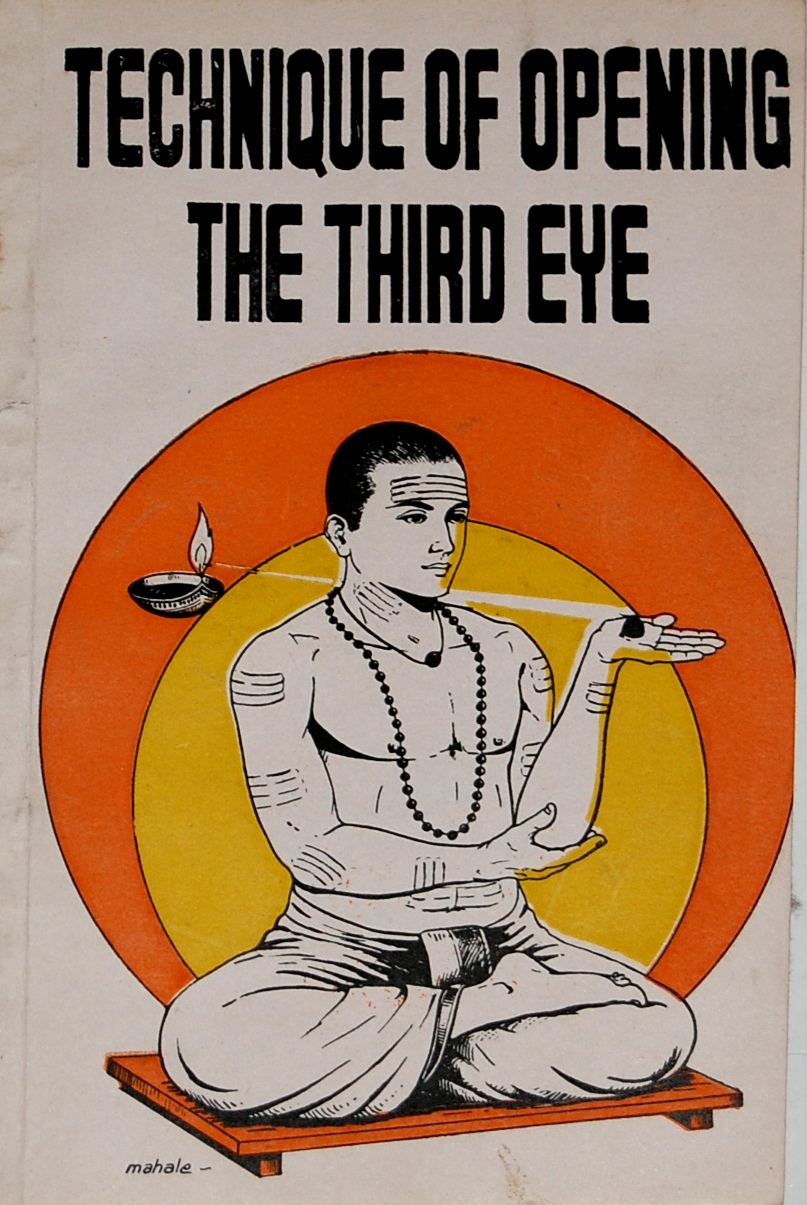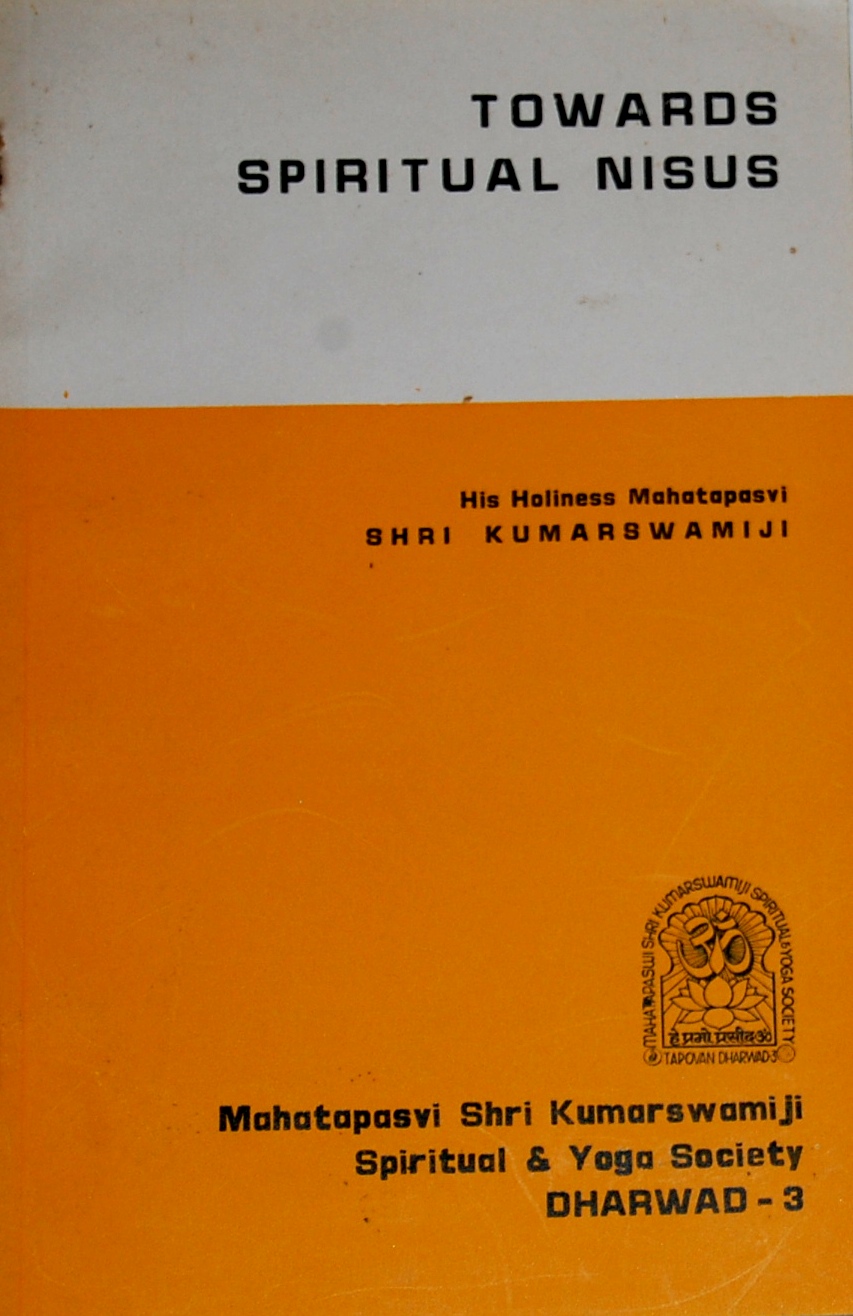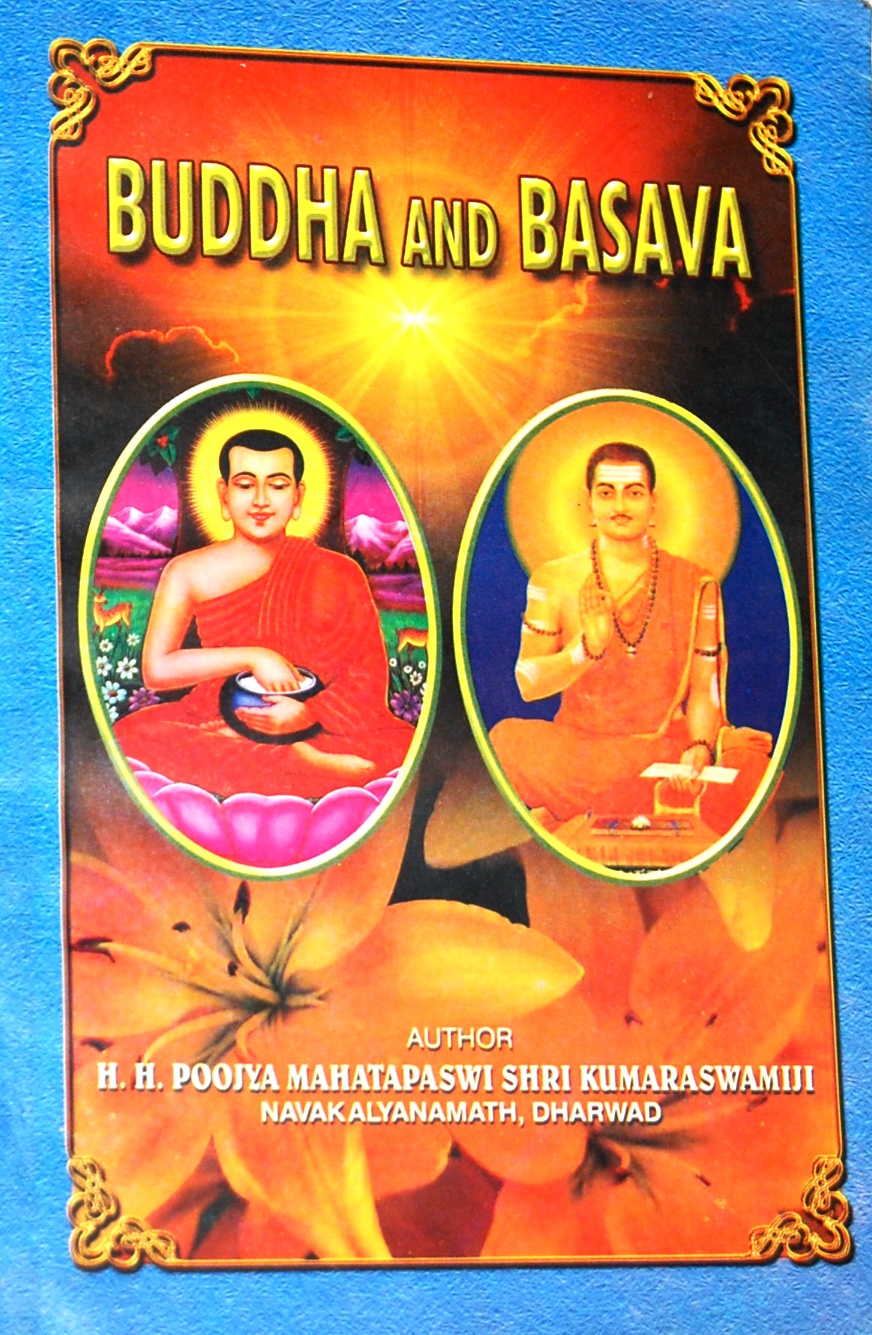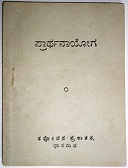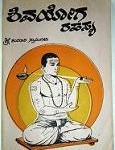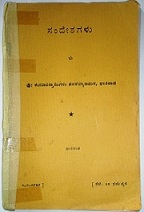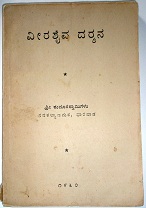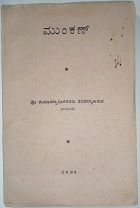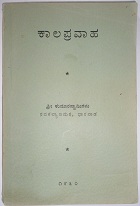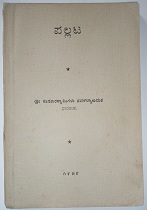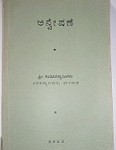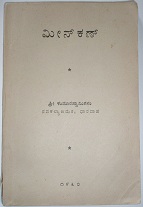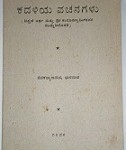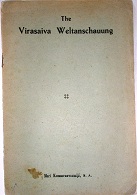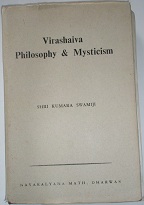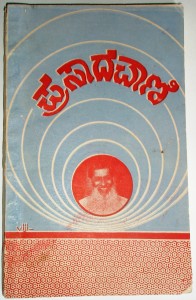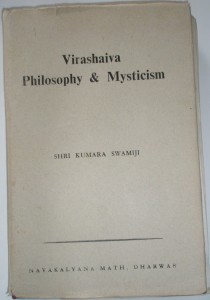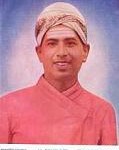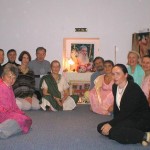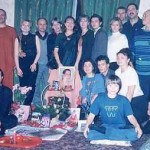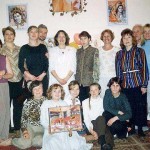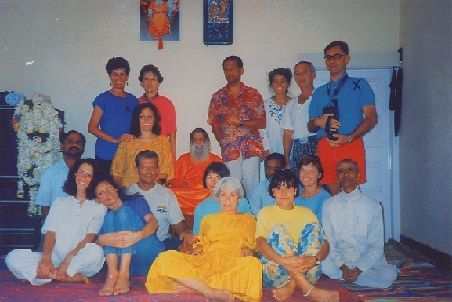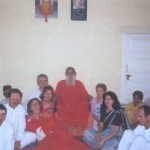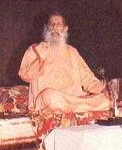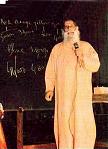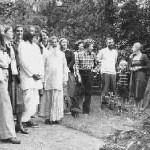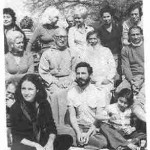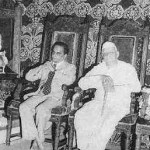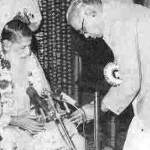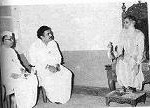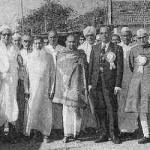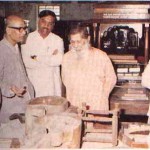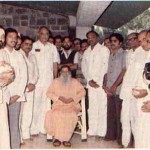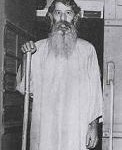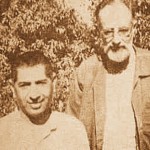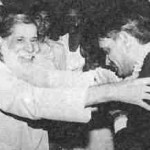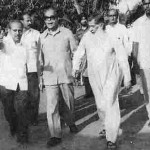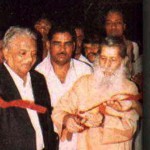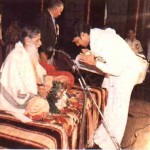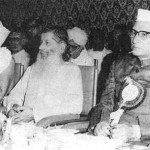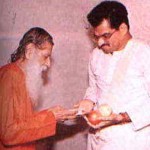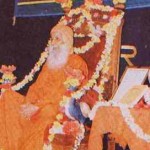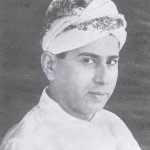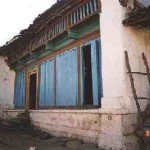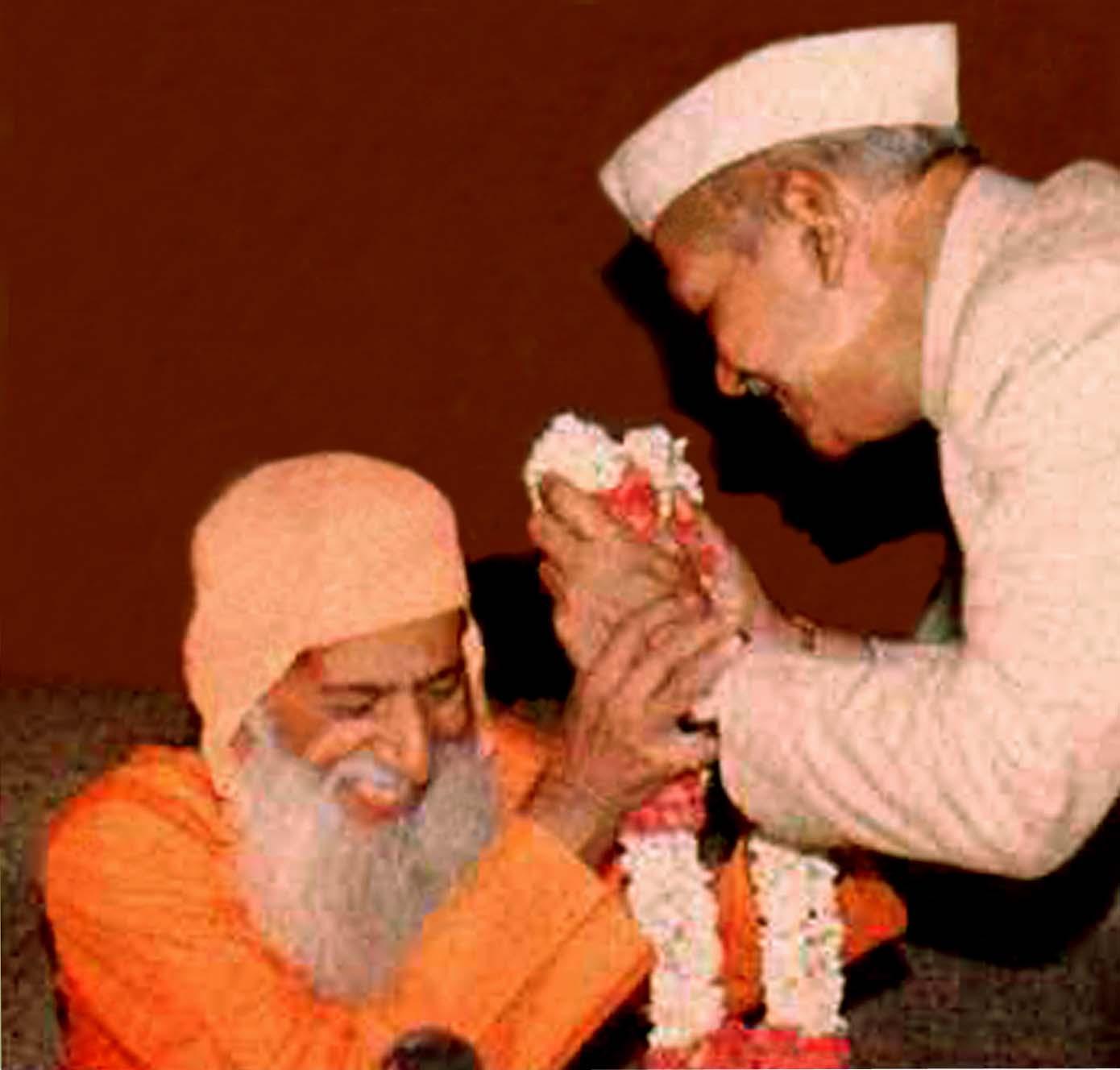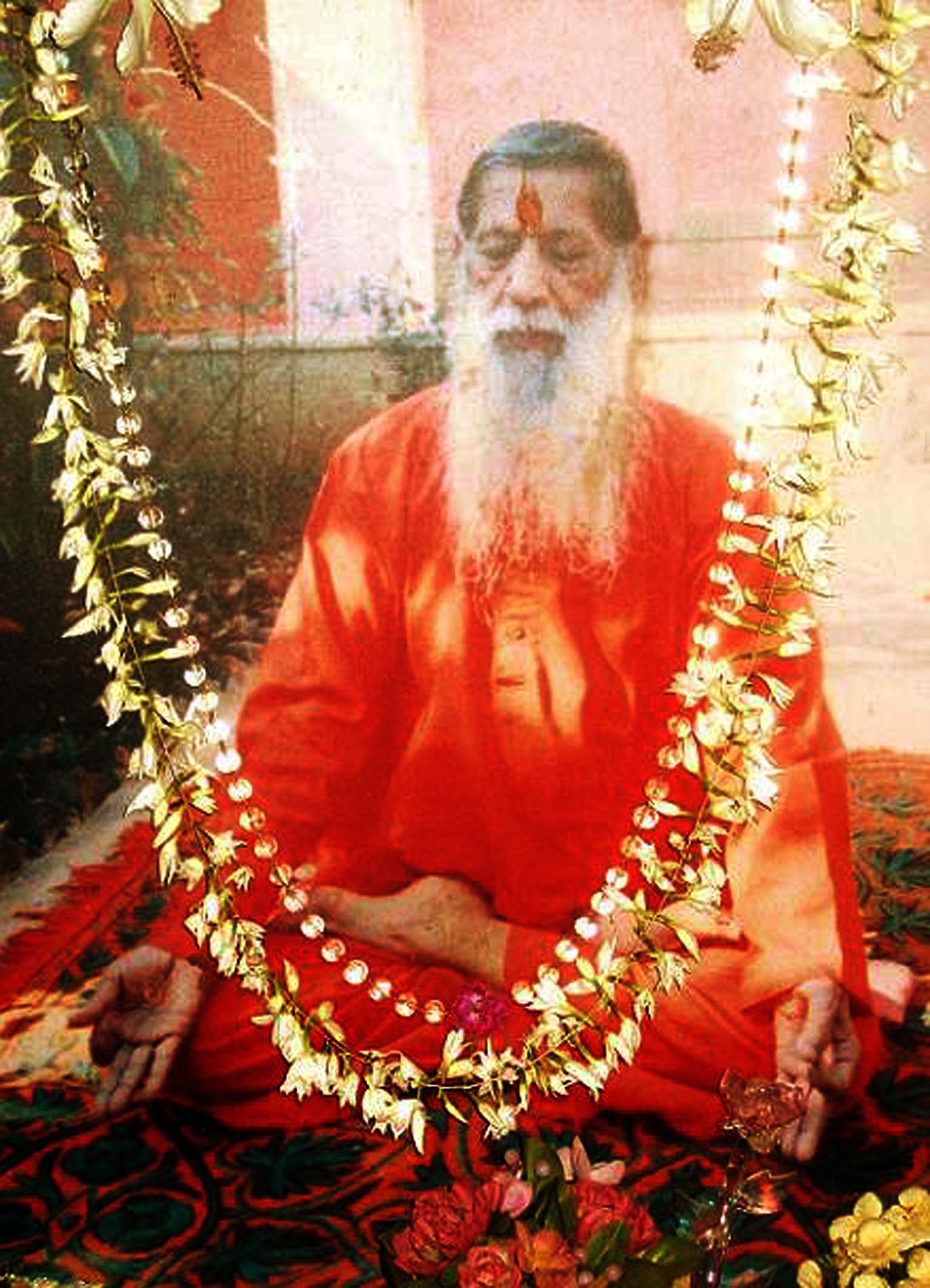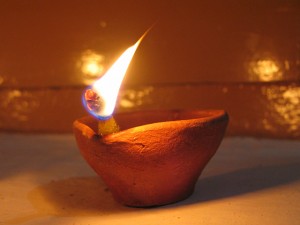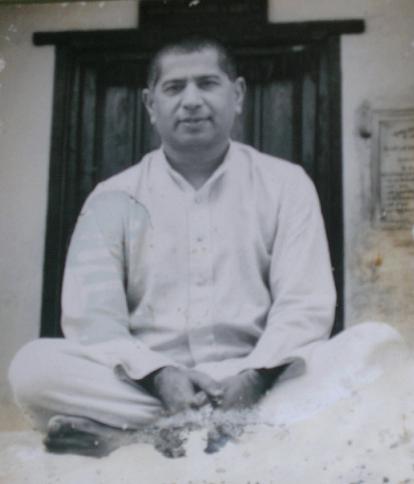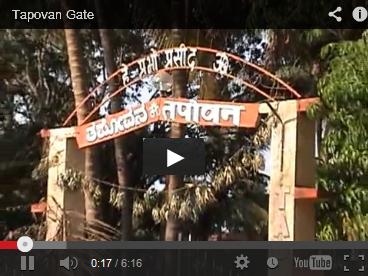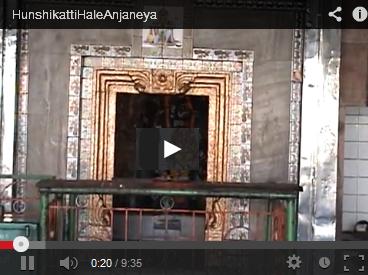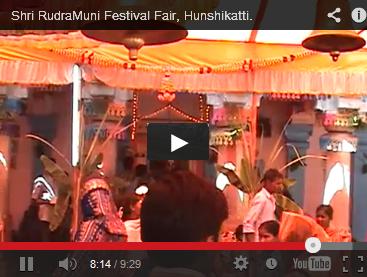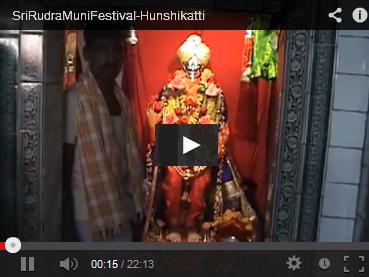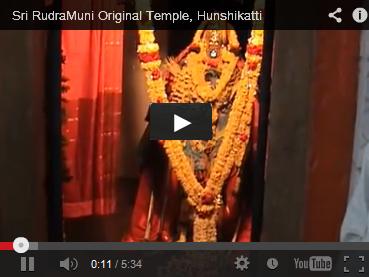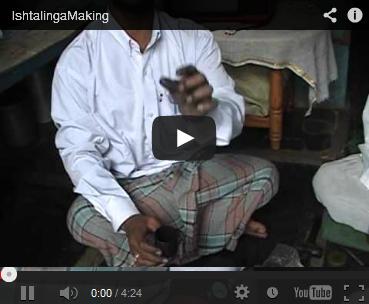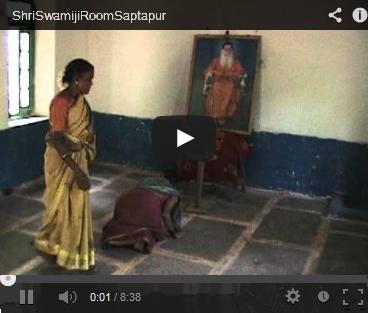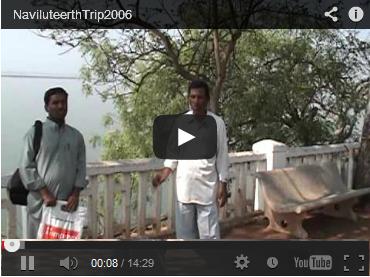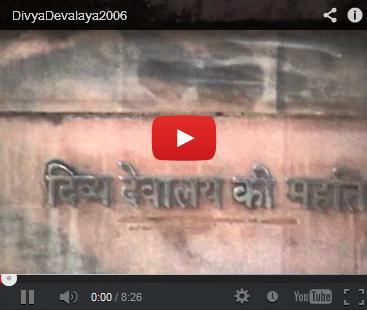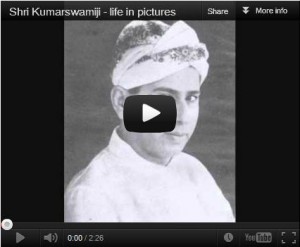The one great ambition of humanity, since time immemorial, has been the establishment of an Ideal Society. There is no dearth of thinkers who construct ideal, each in his own way. The concept of the Ideal Society as visualized by Basava assumed the concrete form in the institution of Anubhava Mantapa. In this Mahamane or Anubhava Mantapa, Prabhu finds an Ideal Society as consisting of those who live according to the will of God who are rewarded in accordance with their spiritual actions by His Grace. Prabhu recognizes free casualty of will and conceives of the Ideal society as Kingdom of Ends. Casualty of will has a twofold function, one the primary and the other secondary. The primary function is exhibited in creation and destruction which is reserved to the Divine Will in its creativeness. All are unanimous in their verdict that Prabhu has attained the status of Jangamahood, that he moves without leaving the footprints, that his body casts no shadow, that he is an embodiment of celestial knowledge, that pure conduct is his wealth, that he is a master of Shivayoga, that he is the crest jewel of the Veerashaiva Darshana, that his resting place is the peerless Absolute, that his mode of worship is purely subjective and that he enjoys immortality.
The contemporaries and the close associates of Prabhu such as Basava, Channabasava, Siddharama, Appanna and a host of others have described the personality of Prabhu in true and glowing colours. All are unanimous in their verdict that Prabhu has attained the status of Jangamahood, that he moves without leaving the footprints, that his body casts no shadow, that he is an embodiment of celestial knowledge, that pure conduct is his wealth, that he is a master of Shivayoga, that he is the crest jewel of the Veerashaiva Darshana, that his resting place is the peerless Absolute, that his mode of worship is purely subjective and that he enjoys immortality. In the sequence of psychospiritual hierarchy, after Aikya sthala comes the Jangama sthala which represents the final consummation of Jangamahood, that is, of supermanhood. For it embodies the love of Bhakta, the power of Mahesha, the knowledge of Prasadi, the Will of Pranalingi, the bliss of Sharana and the unity of Aikya. Hence Jangama sthala signifies the status of Prabhu, who has ensouled the Divine with its diverse aspects and who thereby enlivens the society by his thought, word and deed. His own saying bears evidence to this fact:
Oh! Guheshwara
The Great one
Whose gait is without feet
Whose touch is without hands
Whose taste is without tongue
Who begs with a bowl of love
For the Supreme.”
Jangama sthala denotes the finest consummation that lies in the complete descent of the Divine with its full love, power, knowledge, bliss and majesty into man. This descent transforms man into superman. Nietzche was the prophet of superman and he conceived Superman as the last product of evolution. He speaks thus: “I teach you the superman. Man is something that is to be surpassed. What have ye done to surpass man? All beings hitherto have created something beyond themselves.” Nietzche believes in evolution; as evolution passes from the animal stage to that of man, so its urge makes man emerge into superman. The superman is the man of power, of irresistible will. Nietzche emphasizes upon power and dominating will, and this lends a bad odour to his concept of superman. His revolt against Christ’s idea of love and grace, his repudiation of moral values made him present a titan instead a true man. The concept of Veerashaivism as regards superman differs from Nietzche’s. There is no concept of emergence; rather it is the waking of the Divine that is dormant. When the Divine awakes, it manifests in man either as a descent from above or as disclosure from within, bringing in its wake the transformation of human energies into divine power. The superman is the concrete instrument and centre of the divine play in human society. Shri Aurobindo was a true prophet or superman. His great originality lies in showing how man can be transformed into superman and usher in a divine race of humanity. Shri Aurobindo is very critical of the concept of superman as adumbrated by the ordinary man. All heroes, all saints and all mystics cannot be superman in the true sense. He affirms that the divine descent makes man a superman. But when the Divine force takes possession of an individual, it is likely that the individual may not be completely transformed. There are times when the Divine force meets obstruction in some part of the subject and cannot completely establish itself; or the subject may not be strong enough to receive the full impression of the Divine force; or the Divine may descend no further than the intuitive mind leaving other parts of human nature inelastic and uninspired. Such superman does not exhibit the highest possibility and the finest transformation. The true superman is he when the finest transformation takes place, consequent upon the descent of the Divine with its full range and intensity of power in man, making him all too Divine in place of all too human.
Prabhu has achieved this finest transformation culminating in the spiritualization of flesh. His body, mind, heart and will have all been transformed into the original setting of the Divine power. The tranquillity of being, joyous activity, harmonious movement and the transparency of body are all the visible results of this transformation. Wise and compassionate, he moves freely. But the wisdom of Superman is common sense in an uncommon degree. He reads the panorama of life at first hand, for life in its deeper layers stands revealed before his cosmic intuition. He is moved by compassion but it is difficult to predict the movement of superman, for the texture of his being is always reinforced by the divine inspiration. He sees more extensively, he feels more keenly than ordinary human beings, for his whole being is filled with supernal light. The transforming process under the stress of the Divine power goes up to the physical level, and energizes even the cells and nerve centres of the body by removing disease and death. If with different thought currents the nervous system is affected and the tone is changed, then it is no wonder that the Divine power can spiritualize flesh and remove the sense of its materialistic nature. Matter is indeed energy checked in its creative flow because of the dominance of inertia or Tamas; if by the principle of replacement of energy, inertia is conquered, matter will cease to exist and it will be all life. From the standpoint of life, there is no matter, but only the play of spirit through the different grades of expressions.
What is the principle of replacement of energy? To know this, we have only to understand the nature of life energy. There are two kinds of Prana or life energy, one the Suxma or subtle and the other Sthula or gross. Suxma Prana or the vital energy moves in the artistry of the subtle body, whereas Sthula Prana or gross energy has its movements in the nervous system of the physical body. Sthula Prana is one but as it functions in the body, it is termed variously in accordance with the parts of the body it controls. So we arrive at five kinds of energy known as Prana, Apana, Udana, Samana and Vyana. As there is no equilibrium in their functions, disease sets in the body and degeneration overtakes it. Kaya-shuddhi or purity of the body is obtained by bringing about a poise in the function. But Kaya-siddhi or perfection of body is possible only when the ordinary fivefold functions of Sthula-prana are replaced by the homogeneous action of the Suxma-prana which is charged with vital electricity. Prabhu, as he was a great yogi, knew the secret of the replacement of energy, and by virtue of this principle he had attained the Vyomakaya or the etherial body, which, unlike the physical body, could neither cast shadow nor leave the marks of the movements of the body. That Kaya-siddhi or the attainment of an etherial body is a possibility which can be actualized by great yogis is corroborated by the saying of Shri Aurobindo: “Perfect kaya-siddhi includes other developments such as the Siddhis of Mahima, Laghima, Anima and the invulnerability and incorruptibility of the body powers hitherto attained in the kaliyuga only by very advanced siddhas. They depend primarily on the replacement of the ordinary fivefold processes of Prana, Apana, Samana, Udana and Vyana by the single simplified action of the original or elemental force of Prana, the infinite vital energy surcharged with electricity, vaidyutam.” The statement of the contemporaries as well as of the close associates of Prabhu that his body casts not a shadow, that he moves without leaving footprint is not a fiction; on the contrary, it is an act which can be realized through the process of yoga. Prabhu ascended the Spiritual Throne, the Shunyasimhasana and adorned it with sublime grandeur. The architect of this Spiritual Pontifical Throne was Basava. The Throne was studded with jewels, the colours of which began to flash and its golden peak shone splendidly with incomparable incandescence, but it was surrounded with sharp pointed swords. The throne would often occasion alternate emotions of terror and joy, terror, because of its novelty and uniqueness and joy because of spiritual ecstasy. Basava constructed it with a view to distinguish the true Jangamas from the false ones. Prabhu alone ascended it, for he possessed the etherial body which could remain immune from hurt. The saying of Madivala Machideva, a contemporary of Basava and Prabhu, is typical of this fact. “Behold, the great Master with dishevelled hair ascended the Shunyasimhasana.” Basava with his humility and sincerity, with his faith and sense of surrender was yet critical. He subjected Prabhu to the severe test not because he desired his humiliation, but because he wanted to demonstrate the greatness and glory of Prabhu to the people at large and preferably to the so-called Jangamas.
Prabhu was a possessor of Vyomakaya; he was also a preacher of Vyomasiddhanta or Gaganasiddhanta. Vyoma, Gagana, Shunya, Bayalu all are cognate terms signifying the Supreme or the Absolute. Prabhu preached the truth of the Absolute to the members of the Anubhava Mantapa. Anubhava Mantapa or Shivanubhava Mantapa is variously named as Mahamane, Oddolaga, Puratanara Samiti, etc. Many a time Prabhu refers to it in his sayings, “Sangana Basavanna built the Great House or Mahamane in this mortal world. When I went to see it, it swallowed me even before I stepped into it. Shiva sent a Sharana (Basavanna) to the mortal world lest the Great House or Mahamane go to rack and ruin. Oh! Guheshwara, blessed indeed am I at the sight of the great House of Sangana Basavanna.” Siddharama ejaculates in a similar strain, “Hail to the great House of Sangana Basavanna. Oh! Kapilasiddhamallinatha.”
The one great ambition of humanity, since time immemorial, has been the establishment of an Ideal Society. There is no dearth of thinkers who construct ideal, each in his own way. The concept of the Ideal Society as visualized by Basava assumed the concrete form in the institution of Anubhava Mantapa. In this Mahamane or Anubhava Mantapa, Prabhu finds an Ideal Society as consisting of those who live according to the will of God who are rewarded in accordance with their spiritual actions by His Grace. Prabhu recognizes free casualty of will and conceives of the Ideal society as Kingdom of Ends. Casualty of will has a twofold function, one the primary and the other secondary. The primary function is exhibited in creation and destruction which is reserved to the Divine Will in its creativeness. The secondary function is exhibited in the regulation of cosmic affairs. The transformed human or the Saint can take active part in the latter, but not in the former. With a metaphysical basis and moral and the concept of the Ideal Society, whose members share a common ideal and who strive to establish the Kingdom of Heaven here upon the earth, is one of the noteworthy contributions of Anubhava Mantapa to the religious philosophy of the world.
Tradition maintains that Prabhu gave up his Holy Ghost in the plantain grove of Shrishaila. The terms plantain grove, Shrishaila or Tribhuvanagiri, Amrita, etc. are often met with in his sayings. The Plantain grove represents the body with a cluster of innumerable cells, ganglions and nerves; Shrishaila or Tribhuvanagiri, the Brahmarandhra; Amrita, the cerebrospinal fluid. There is a cavity in the brain and it is known as Brahmarandhra, or rather Brahmarandhra is the intercommunicating cavity of the four ventricles of the brain. Suxma Prana courses through this cavity and is continuous with the central canal of the spinal cord. This cavity is constantly secreting fluid which is otherwise known as vitality in occult science. If the nectar of life is preserved and made to course through the whole frame, then every cell of the body is charged with vitality. We must not confuse vitality with electricity. Its action differs in many ways from that of either electricity, light or heat. These cause oscillation of the atom as a whole, but vitality comes to the atom not from without, but from within. An atom then is nothing but the manifestation of a force. As vitality wells up from within, it weans the body from the inertia of matter and converts it into a force centre. The yogi, who has achieved this state, can materialize and dematerialize his body at will; and death cannot touch him. The consciousness of Prabhu was effortlessly identified with universal vitality. Hence gravitation, whether the force of Newton or Einstein’s manifestation of inertia, as powerless to compel him to exhibit the property of weight, which is the distinctive condition of all material objects. Prabhu, who had his consciousness cleared of all mists, could perceive the cosmic essence, a divine light, move with the velocity of light and utilize the creative light rays in bringing into instant visibility any physical manifestation and dematerialization. Prabhu was indeed the master of this process, and hence he did not die a natural death like ordinary mortals nor did he give up his Holy Ghost like a saint, but as a perfect Master he dematerialized his body at will, without the constraint of space and time, of here and thereafter.
Listen to his celestial saying:
“To Him who, ascending the mountain of the triple abode
With His breath pulsing upward from the still base,
Penetrates the plantain grove of the flesh;
To the Glorious one who moves about
Where here and hereafter are one,
Farther than where is the light of the Absolute
Beyond understanding and beyond change,
The consummation of the Ultimate Knowledge;
Oh! Guheshwara,
To Him, the Glorious One who has realized Thy reality,
I say, Hail!. Oh! Hail!!”
This article – ‘Allama Prabhu – His Legacy and Personality’ – is taken from H.H.Mahatapasvi Shri Kumarswamiji-s book, ‘Prophets of Veerashaivism’.








